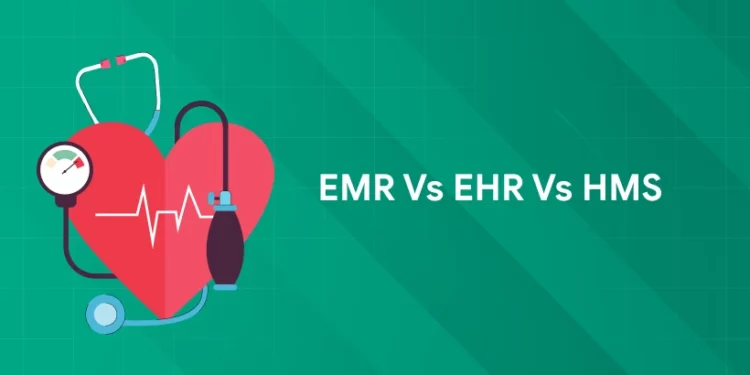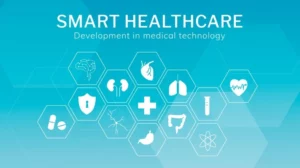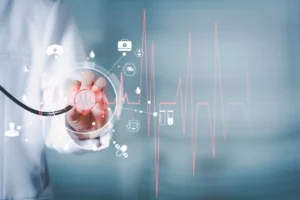Table of Contents
Key Takeaways:
- EMR is a digital record system limited to a single provider, whereas EHR facilitates multi-provider data sharing for coordinated care.
- HMS (Hospital Management System) handles hospital-wide operations including administration, billing, staffing, and inventory.
- Integration of EHR and HMS systems drives cleaner data, improved workflows, enhanced patient experiences, and reduced costs.
- Choosing the correct software depends on hospital size, interoperability needs, and clinical versus administrative focus.
- Professionals can master healthcare IT and operations with Entri’s Hospital Administration Course, featuring placement support and industry-relevant training.
Introduction
Imagine walking into a hospital and your entire medical history, from previous tests to medication lists, is immediately accessible to your doctor — regardless of where you sought care before. This seamless access eases diagnosis, speeds treatment, and ensures nothing important is overlooked. Behind this convenience is a complex but vital ecosystem of healthcare software systems helping hospitals move away from chaotic paper records toward digital precision.
For administrators, clinicians, and IT professionals, it’s essential to understand the differences between Electronic Medical Records (EMR), Electronic Health Records (EHR), and Hospital Management Systems (HMS). Each plays a unique role in healthcare delivery and administration. This blog demystifies these tools, explores their individual and combined benefits, and highlights how healthcare professionals can lead digital transformation in their institutions.
What is EMR (Electronic Medical Record)?
1: What is the primary role of a hospital administrator?
- EMR is the digital version of traditional paper charts used within one clinical location.
- Contains detailed patient data such as diagnoses, medication history, lab results, and treatment notes specific to that facility.
- Improves accuracy by minimizing manual documentation errors, ensuring healthcare providers have up-to-date clinical data during visits.
- Data is stored locally and cannot easily transfer or be shared with other providers or institutions.
- Ideal for single-specialty clinics and independent practitioners focusing on their internal patient record management.
- It reduces paperwork delays and improves patient visit efficiency but suffers from limited interoperability.
Read in detail at What are Electronic Medical Records?
Tips:
- Use EMR systems to streamline internal clinical workflows.
- Be aware that if patients visit multiple providers, manual data sharing will be required outside the EMR system.
- EMRs are usually more affordable and simpler to implement than comprehensive EHR systems.
Hospital Administration Course with Assured Career Growth
Hospital Administration Course by Entri App: Master essential healthcare management skills, gain certification, and secure top roles in leading hospitals
Join Now!What is EHR (Electronic Health Record)?
- EHR is a more advanced, interoperable system designed to collect and share patient data across multiple healthcare providers and organizations.
- Centralizes comprehensive patient health data over time—immunizations, allergies, imaging, labs, prescriptions, and encounters from various sources.
- Supports real-time data sharing and collaboration among primary care physicians, specialists, hospitals, and laboratories.
- Enhances continuity of care by providing a full patient history, enabling coordinated treatment plans and reducing medical errors.
- Includes robust features such as patient portals, telehealth integration, data analytics, and population health management.
- Becoming the standard in most hospitals and large healthcare systems, with a market projected to reach $47 billion by 2027.
Know more about EHRs in this blog – What Is a Hospital Information System (HIS)?
Benefits:
- Facilitates faster, more accurate diagnoses.
- Reduces redundant testing.
- Empowers patients to access and manage their own health records digitally.
- Supports compliance with regulations like HIPAA and GDPR due to secure, auditable data management.
What is HMS (Hospital Management System)?
- HMS (Health/ Hospital Management System) is an enterprise-grade software suite designed to optimize hospital administration and operations.
- Goes beyond clinical records to manage patient registration, appointment scheduling, billing, inventory control, human resources, payroll, and equipment management.
- Provides an overall view of hospital performance with real-time dashboards, alerts, and analytics.
- Automates workflows traditionally handled manually, reducing human error and operational inefficiencies.
- Most HMS solutions today support integration with EHR or EMR systems to synchronize patient data with administrative functions.
- Enables better financial oversight and compliance with regulatory requirements.
Learn more at What is a Hospital Management System?
Advantages:
- Cleaner financial reporting and reduced costs by tracking supplies and inventory.
- Improved staff scheduling and payroll management.
- Enhanced patient experience through online portals and streamlined admission-to-discharge processes.
- Bridges clinical data with hospital business intelligence.
EMR vs EHR vs HMS: In-Depth Comparison
| Feature | EMR | EHR | HMS |
|---|---|---|---|
| Primary Function | Digital patient charts within a single practice | Comprehensive, interoperable patient records across multiple providers | Overall hospital administration & operations management |
| Data Sharing | Limited to one facility | Designed for multi-organizational data exchange | Across hospital departments |
| Scope | Clinical only | Clinical + Collaborative Care | Administrative, Financial & Clinical |
| Level of Complexity | Lower | Medium to High | High |
| Best For | Small practices, specialists | Larger hospitals, health networks | Medium to large hospitals or healthcare chains |
Hospital Administration Course with Assured Career Growth
Hospital Administration Course by Entri App: Master essential healthcare management skills, gain certification, and secure top roles in leading hospitals
Join Now!Why Integrate EHR and HMS?
Integrating EHR and HMS leads to systemic improvements within healthcare organizations by connecting clinical and operational data. Integration offers the following benefits:
- Cleaner, Shared Data: Eliminates discrepancies from segregated systems, improving accuracy in clinical documentation and financial records.
- Faster Claims Processing: Streamlines claim-to-payment cycles with synchronized insurance, billing, and clinical coding information.
- Improved Decision-Making: Unified data supports comprehensive business intelligence and operational reporting for leadership.
- Enhanced Patient Experience: Patients benefit from smoother registration, appointment booking, and access to their full medical and billing information.
- Reduced Costs and Errors: Automation reduces duplication, manual errors, and wastage across departments.
You might also like: Top Challenges in Hospital Administration and How Software is Solving Them
Tips for Choosing Healthcare Software
- Assess your facility’s size, patient volume, and clinical scope before selecting EMR or EHR systems.
- Prioritize interoperability features to ensure seamless data flow between clinical and business functions.
- Look for customizable dashboards and automated reporting in HMS for better operational oversight.
- Evaluate data security features to ensure compliance with regulations like HIPAA and GDPR.
- Invest in training and certification programs for staff, such as Entri’s Hospital Administration Course — it focuses on navigating hospital IT systems, improving management skills, and includes placement support.
People also read: Healthray HMS: The latest AI-Powered HMS
Why Learn Hospital Administration with Entri?
Healthcare facilities need skilled professionals who understand both clinical workflows and administrative management to use EMR, EHR, and HMS technologies effectively. Entri’s Hospital Administration Course offers:
- In-depth knowledge of hospital operations, healthcare IT integration, and regulatory compliance.
- Practical skills in managing patient records, billing, inventory, and workforce planning.
- Placement support making it easier to start your career in hospital management roles.
- Access to updated curriculum reflecting the latest healthcare technology trends.
Discover the benefits of this course and take a confident step into the healthcare management profession.
Conclusion
Healthcare is rapidly evolving with digital technology at its core. Understanding the distinctions between EMR, EHR, and HMS is essential for anyone navigating or managing healthcare facilities today. These systems empower organizations to provide safer, faster, and more coordinated care while optimizing operational efficiency.
Entri’s Hospital Administration Course is your gateway to mastering these technologies and entering a thriving career in healthcare management. With expert-led training and valuable placement support, it prepares you to make a real impact in modern healthcare institutions.
Take the step today and embrace the future of healthcare management with confidence and skill by enrolling in Entri’s Hospital Administration Course.
| Also Read | |
| How to Become a Hospital Administrator | |
| Top Skills Needed for a Successful Career in Hospital Administration | |
| Career Pathways in Hospital and Healthcare Administration |
Hospital Administration Course with Assured Career Growth
Hospital Administration Course by Entri App: Master essential healthcare management skills, gain certification, and secure top roles in leading hospitals
Join Now!Frequently Asked Questions
What is the fundamental difference between EMR and EHR?
EMR records are confined to one practice’s digital charts, while EHRs are designed for data sharing across multiple healthcare providers, supporting coordinated patient care.
Can HMS include EMR/EHR features?
Yes, modern HMS systems often integrate with EMR/EHR software to provide a unified clinical and administrative platform.
Why is integration of these systems important?
Integration improves workflow efficiency, reduces data errors, accelerates billing, and enhances patient care by connecting clinical and operational functions seamlessly.
What kind of healthcare organizations should consider EHR over EMR?
Larger hospitals, multi-specialty clinics, and health networks benefit from EHR systems due to their interoperability and comprehensive record-keeping.
How does Entri’s Hospital Administration course help in managing these systems?
The course equips learners with knowledge of hospital IT systems, administration best practices, and offers placement opportunities to facilitate career growth in healthcare management.
















